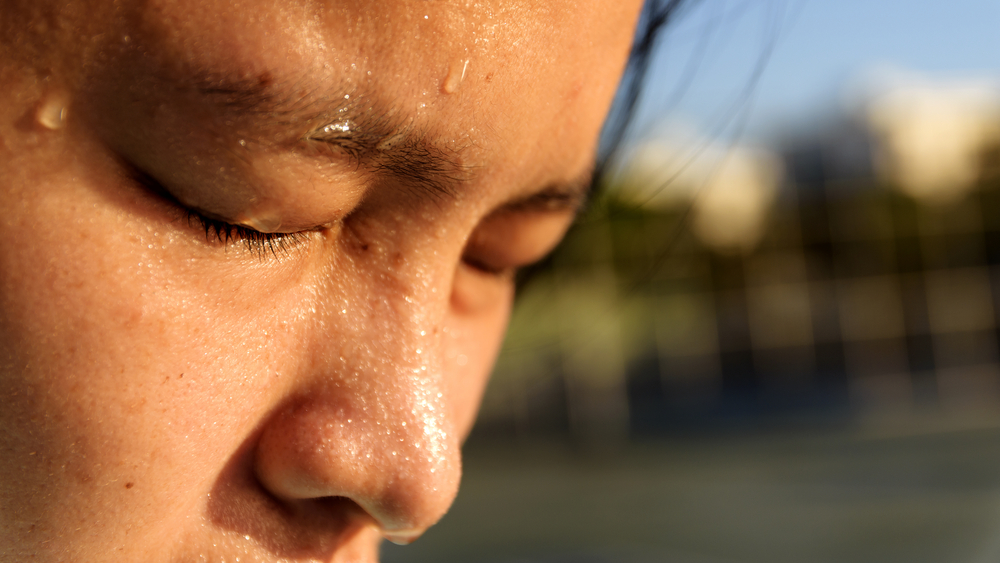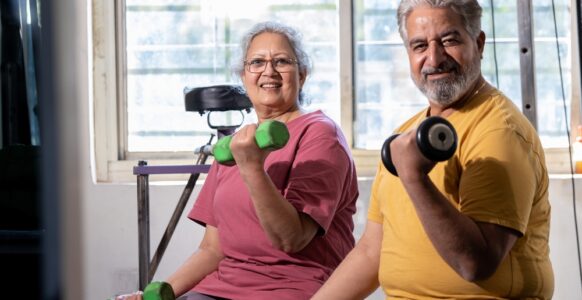Have you ever noticed how the person next to you appears to be in perfect health while you’re dripping like a leaking faucet while working out? Or perhaps it’s the other way around—your gym buddy is soaked, and you’re hardly glistening. In any case, it’s reasonable to ask why some people perspire a lot while others hardly perspire at all.
Lindsey Bordone, MD, a dermatologist at Columbia University Medical Center, says sweating is influenced by more than just your level of effort. Genetics, temperature, humidity, hydration, and even your level of fitness all play a part.
And even though sweating may not be the most glamorous of bodily functions, it’s actually essential. “One of the main purposes of sweating is to help your body stay balanced and avoid overheating,” says Movement Vault founder Grayson Wickham, DPT, CSCS, “sweating appears on your skin as your body heats up and evaporates, cooling you down.” Sounds good, doesn’t it?
Why You Might Sweat Less — and Still Be Totally Healthy
It’s not always a sign of trouble if you don’t perspire as much as other people. The sweat response varies slightly from person to person. Your level of hydration, general fitness, and genetics can all have a significant impact.
For instance, individuals who are properly hydrated tend to perspire more effectively, whereas those who are dehydrated might perspire less. Interestingly, because their bodies are better at controlling their temperature, people who are more physically fit may begin to perspire earlier in a workout.
Sweating can also be influenced by certain drugs, illnesses (such as diabetes or thyroid problems), and even anxiety. Therefore, it could just be your body doing what it normally does if you’re not soaked after a spin class.
When Not Sweating Enough Becomes a Problem
Hypohidrosis, also known as anhidrosis, is a disorder in which your sweat glands malfunction, resulting in insufficient perspiration. Dehydration, nerve damage (sometimes from diabetes), or skin conditions like psoriasis are some of the causes of this, according to the Mayo Clinic.
Sweating can also be affected by some medications, including some antipsychotics. Even mild cases of hypohidrosis can go undiagnosed for years, though severe cases are uncommon.
The issue is that improper sweating prevents your body from cooling down efficiently. This puts you at greater risk for overheating, heat exhaustion, or even heatstroke, particularly when exercising or in hot conditions.
Feeling unusually hot, flushed, or lightheaded, even when those around you are at ease, are common symptoms of hypohidrosis. Additionally, you may experience cramping in your muscles or fatigue easily in hot weather.
How to Know When to See a Doctor?
You don’t necessarily have a health problem if you don’t perspire much. It’s totally acceptable for some people to naturally produce less perspiration or to have fewer sweat glands.
However, it’s worth consulting your doctor if you experience significant changes in your normal sweating patterns or if you often feel weak, flushed, or overheated when exercising. Treatment may be necessary for conditions like hypothyroidism or nerve damage that are linked to a decrease in sweat production.
In more severe situations, doctors may suggest cooling vests or other devices to help safely control body temperature, especially in children. In some cases, doctors may also prescribe drugs that cause perspiration.
Your body uses sweat as a natural cooling mechanism to regulate your body temperature and avoid overheating. Your level of fitness, health, hydration, and genetics all affect how much you perspire.
There’s usually nothing to be concerned about if you feel fine despite being a light sweater. But don’t ignore it—speak to your doctor if you frequently feel hot, flushed, or lightheaded, or if you notice a sudden decrease in your sweating. Although a small amount of perspiration may be uncomfortable, it also indicates that your body’s temperature regulation system is functioning properly.























